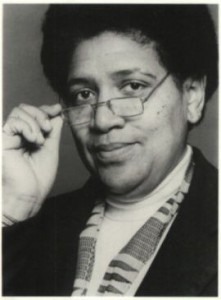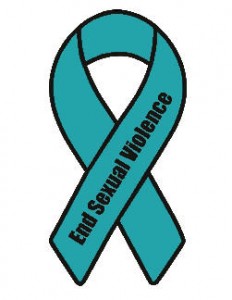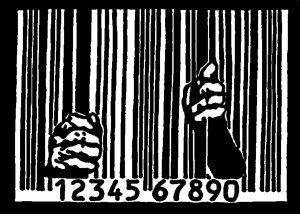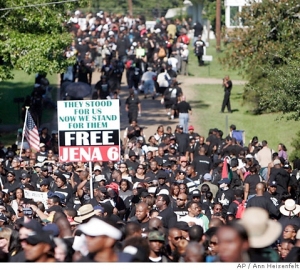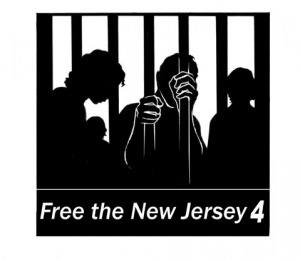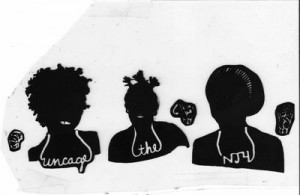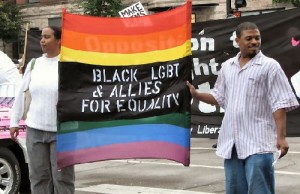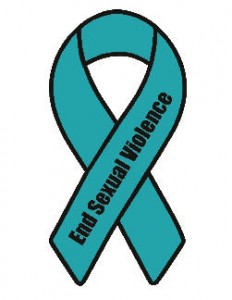
In "Distant View of a Minaret," the late and much-neglected Egyptian writer Alifa Rifaat begins her short story with a woman so unmoved by sex with her husband that as he focuses solely on his pleasure, she notices a spider web she must sweep off the ceiling and has time to ruminate on her husband's repeated refusal to prolong intercourse until she too climaxes, "as though purposely to deprive her." Just as her husband denies her an orgasm, the call to prayer interrupts his, and the man leaves. After washing up, she loses herself in prayer -- so much more satisfying that she can't wait until the next prayer -- and looks out onto the street from her balcony. She interrupts her reverie to make coffee dutifully for her husband to drink after his nap. Taking it to their bedroom to pour it in front of him as he prefers, she notices he is dead. She instructs their son to go and get a doctor. "She returned to the living room and poured out the coffee for herself. She was surprised at how calm she was," Rifaat writes.
In a crisp three-and-a-half pages, Rifaat lays out a trifecta of sex, death, and religion, a bulldozer that crushes denial and defensiveness to get at the pulsating heart of misogyny in the Middle East. There is no sugarcoating it. They don't hate us because of our freedoms, as the tired, post-9/11 American cliché had it. We have no freedoms because they hate us, as this Arab woman so powerfully says.
Yes: They hate us. It must be said.
Some may ask why I'm bringing this up now, at a time when the region has risen up, fueled not by the usual hatred of America and Israel but by a common demand for freedom. After all, shouldn't everyone get basic rights first, before women demand special treatment? And what does gender, or for that matter, sex, have to do with the Arab Spring? But I'm not talking about sex hidden away in dark corners and closed bedrooms. An entire political and economic system -- one that treats half of humanity like animals -- must be destroyed along with the other more obvious tyrannies choking off the region from its future. Until the rage shifts from the oppressors in our presidential palaces to the oppressors on our streets and in our homes, our revolution has not even begun.
So: Yes, women all over the world have problems; yes, the United States has yet to elect a female president; and yes, women continue to be objectified in many "Western" countries (I live in one of them). That's where the conversation usually ends when you try to discuss why Arab societies hate women.

But let's put aside what the United States does or doesn't do to women. Name me an Arab country, and I'll recite a litany of abuses fueled by a toxic mix of culture and religion that few seem willing or able to disentangle lest they blaspheme or offend. When more than 90 percent of ever-married women in Egypt -- including my mother and all but one of her six sisters -- have had their genitals cut in the name of modesty, then surely we must all blaspheme. When Egyptian women are subjected to humiliating "virginity tests" merely for speaking out, it's no time for silence. When an article in the Egyptian criminal code says that if a woman has been beaten by her husband "with good intentions" no punitive damages can be obtained, then to hell with political correctness. And what, pray tell, are "good intentions"? They are legally deemed to include any beating that is "not severe" or "directed at the face." What all this means is that when it comes to the status of women in the Middle East, it's not better than you think. It's much, much worse. Even after these "revolutions," all is more or less considered well with the world as long as women are covered up, anchored to the home, denied the simple mobility of getting into their own cars, forced to get permission from men to travel, and unable to marry without a male guardian's blessing -- or divorce either.
Not a single Arab country ranks in the top 100 in the World Economic Forum's Global Gender Gap Report, putting the region as a whole solidly at the planet's rock bottom. Poor or rich, we all hate our women. Neighbors Saudi Arabia and Yemen, for instance, might be eons apart when it comes to GDP, but only four places separate them on the index, with the kingdom at 131 and Yemen coming in at 135 out of 135 countries. Morocco, often touted for its "progressive" family law (a 2005 report by Western "experts" called it "an example for Muslim countries aiming to integrate into modern society"), ranks 129; according to Morocco's Ministry of Justice, 41,098 girls under age 18 were married there in 2010.
It's easy to see why the lowest-ranked country is Yemen, where 55 percent of women are illiterate, 79 percent do not participate in the labor force, and just one woman serves in the 301-person parliament. Horrific news reports about 12-year-old girls dying in childbirth do little to stem the tide of child marriage there. Instead, demonstrations in support of child marriage outstrip those against it, fueled by clerical declarations that opponents of state-sanctioned pedophilia are apostates because the Prophet Mohammed, according to them, married his second wife, Aisha, when she was a child.
But at least Yemeni women can drive. It surely hasn't ended their litany of problems, but it symbolizes freedom -- and nowhere does such symbolism resonate more than in Saudi Arabia, where child marriage is also practiced and women are perpetually minors regardless of their age or education. Saudi women far outnumber their male counterparts on university campuses but are reduced to watching men far less qualified control every aspect of their lives.
Yes, Saudi Arabia, the country where a gang-rape survivor was sentenced to jail for agreeing to get into a car with an unrelated male and needed a royal pardon; Saudi Arabia, where a woman who broke the ban on driving was sentenced to 10 lashes and again needed a royal pardon; Saudi Arabia, where women still can't vote or run in elections, yet it's considered "progress" that a royal decree promised to enfranchise them for almost completely symbolic local elections in -- wait for it -- 2015. So bad is it for women in Saudi Arabia that those tiny paternalistic pats on their backs are greeted with delight as the monarch behind them, King Abdullah, is hailed as a "reformer" -- even by those who ought to know better, such as Newsweek, which in 2010 named the king one of the top 11 most respected world leaders. You want to know how bad it is? The "reformer's" answer to the revolutions popping up across the region was to numb his people with still more government handouts -- especially for the Salafi zealots from whom the Saudi royal family inhales legitimacy. King Abdullah is 87. Just wait until you see the next in line, Prince Nayef, a man straight out of the Middle Ages. His misogyny and zealotry make King Abdullah look like Susan B. Anthony.

SO WHY DO THEY HATE US? Sex, or more precisely hymens, explains much.
"Why extremists always focus on women remains a mystery to me," U.S. Secretary of State Hillary Clinton said recently. "But they all seem to. It doesn't matter what country they're in or what religion they claim. They want to control women." (And yet Clinton represents an administration that openly supports many of those misogynistic despots.) Attempts to control by such regimes often stem from the suspicion that without it, a woman is just a few degrees short of sexual insatiability. Observe Yusuf al-Qaradawi, the popular cleric and longtime conservative TV host on Al Jazeera who developed a stunning penchant for the Arab Spring revolutions -- once they were under way, that is -- undoubtedly understanding that they would eliminate the tyrants who long tormented and oppressed both him and the Muslim Brotherhood movement from which he springs.
I could find you a host of crackpots sounding off on Woman the Insatiable Temptress, but I'm staying mainstream with Qaradawi, who commands a huge audience on and off the satellite channels. Although he says female genital mutilation (which he calls "circumcision," a common euphemism that tries to put the practice on a par with male circumcision) is not "obligatory," you will also find this priceless observation in one of his books: "I personally support this under the current circumstances in the modern world. Anyone who thinks that circumcision is the best way to protect his daughters should do it," he wrote, adding, "The moderate opinion is in favor of practicing circumcision to reduce temptation." So even among "moderates," girls' genitals are cut to ensure their desire is nipped in the bud -- pun fully intended. Qaradawi has since issued a fatwa against female genital mutilation, but it comes as no surprise that when Egypt banned the practice in 2008, some Muslim Brotherhood legislators opposed the law. And some still do -- including a prominent female parliamentarian, Azza al-Garf.
Yet it's the men who can't control themselves on the streets, where from Morocco to Yemen, sexual harassment is endemic and it's for the men's sake that so many women are encouraged to cover up. Cairo has a women-only subway car to protect us from wandering hands and worse; countless Saudi malls are for families only, barring single men from entry unless they produce a requisite female to accompany them.

We often hear how the Middle East's failing economies have left many men unable to marry, and some even use that to explain rising levels of sexual harassment on the streets. In a 2008 survey by the Egyptian Center for Women's Rights, more than 80 percent of Egyptian women said they'd experienced sexual harassment and more than 60 percent of men admitted to harassing women. Yet we never hear how a later marriage age affects women. Do women have sex drives or not? Apparently, the Arab jury is still out on the basics of human biology.
Enter that call to prayer and the sublimation through religion that Rifaat so brilliantly introduces in her story. Just as regime-appointed clerics lull the poor across the region with promises of justice -- and nubile virgins -- in the next world rather than a reckoning with the corruption and nepotism of the dictator in this life, so women are silenced by a deadly combination of men who hate them while also claiming to have God firmly on their side.
I turn again to Saudi Arabia, and not just because when I encountered the country at age 15 I was traumatized into feminism -- there's no other way to describe it -- but because the kingdom is unabashed in its worship of a misogynistic God and never suffers any consequences for it, thanks to its double-whammy advantage of having oil and being home to Islam's two holiest places, Mecca and Medina.
Then -- the 1980s and 1990s -- as now, clerics on Saudi TV were obsessed with women and their orifices, especially what came out of them. I'll never forget hearing that if a baby boy urinated on you, you could go ahead and pray in the same clothes, yet if a baby girl peed on you, you had to change. What on Earth in the girl's urine made you impure? I wondered.
Hatred of women.
How much does Saudi Arabia hate women? So much so that 15 girls died in a school fire in Mecca in 2002, after "morality police" barred them from fleeing the burning building -- and kept firefighters from rescuing them -- because the girls were not wearing headscarves and cloaks required in public. And nothing happened. No one was put on trial. Parents were silenced. The only concession to the horror was that girls' education was quietly taken away by then-Crown Prince Abdullah from the Salafi zealots, who have nonetheless managed to retain their vise-like grip on the kingdom's education system writ large.
This, however, is no mere Saudi phenomenon, no hateful curiosity in the rich, isolated desert. The Islamist hatred of women burns brightly across the region -- now more than ever.
In Kuwait, where for years Islamists fought women's enfranchisement, they hounded the four women who finally made it into parliament, demanding that the two who didn't cover their hair wear hijabs. When the Kuwaiti parliament was dissolved this past December, an Islamist parliamentarian demanded the new house -- devoid of a single female legislator -- discuss his proposed "decent attire" law.
In Tunisia, long considered the closest thing to a beacon of tolerance in the region, women took a deep breath last fall after the Islamist Ennahda party won the largest share of votes in the country's Constituent Assembly. Party leaders vowed to respect Tunisia's 1956 Personal Status Code, which declared "the principle of equality between men and women" as citizens and banned polygamy. But female university professors and students have complained since then of assaults and intimidation by Islamists for not wearing hijabs, while many women's rights activists wonder how talk of Islamic law will affect the actual law they will live under in post-revolution Tunisia.
In Libya, the first thing the head of the interim government, Mustafa Abdel Jalil, promised to do was to lift the late Libyan tyrant's restrictions on polygamy. Lest you think of Muammar al-Qaddafi as a feminist of any kind, remember that under his rule girls and women who survived sexual assaults or were suspected of "moral crimes" were dumped into "social rehabilitation centers," effective prisons from which they could not leave unless a man agreed to marry them or their families took them back.
Then there's Egypt, where less than a month after President Hosni Mubarak stepped down, the military junta that replaced him, ostensibly to "protect the revolution," inadvertently reminded us of the two revolutions we women need. After it cleared Tahrir Square of protesters, the military detained dozens of male and female activists. Tyrants oppress, beat, and torture all. We know. But these officers reserved "virginity tests" for female activists: rape disguised as a medical doctor inserting his fingers into their vaginal opening in search of hymens. (The doctor was sued and eventually acquitted in March.)
What hope can there be for women in the new Egyptian parliament, dominated as it is by men stuck in the seventh century? A quarter of those parliamentary seats are now held by Salafis, who believe that mimicking the original ways of the Prophet Mohammed is an appropriate prescription for modern life. Last fall, when fielding female candidates, Egypt's Salafi Nour Party ran a flower in place of each woman's face. Women are not to be seen or heard -- even their voices are a temptation -- so there they are in the Egyptian parliament, covered from head to toe in black and never uttering a word.
And we're in the middle of a revolution in Egypt! It's a revolution in which women have died, been beaten, shot at, and sexually assaulted fighting alongside men to rid our country of that uppercase Patriarch -- Mubarak -- yet so many lowercase patriarchs still oppress us. The Muslim Brotherhood, with almost half the total seats in our new revolutionary parliament, does not believe women (or Christians for that matter) can be president. The woman who heads the "women's committee" of the Brotherhood's political party said recently that women should not march or protest because it's more "dignified" to let their husbands and brothers demonstrate for them.

The hatred of women goes deep in Egyptian society. Those of us who have marched and protested have had to navigate a minefield of sexual assaults by both the regime and its lackeys, and, sadly, at times by our fellow revolutionaries. On the November day I was sexually assaulted on Mohamed Mahmoud Street near Tahrir Square, by at least four Egyptian riot police, I was first groped by a man in the square itself. While we are eager to expose assaults by the regime, when we're violated by our fellow civilians we immediately assume they're agents of the regime or thugs because we don't want to taint the revolution.
SO WHAT IS TO BE DONE?
First we stop pretending. Call out the hate for what it is. Resist cultural relativism and know that even in countries undergoing revolutions and uprisings, women will remain the cheapest bargaining chips. You -- the outside world -- will be told that it's our "culture" and "religion" to do X, Y, or Z to women. Understand that whoever deemed it as such was never a woman. The Arab uprisings may have been sparked by an Arab man -- Mohamed Bouazizi, the Tunisian street vendor who set himself on fire in desperation -- but they will be finished by Arab women.
Amina Filali -- the 16-year-old Moroccan girl who drank poison after she was forced to marry, and beaten by, her rapist -- is our Bouazizi. Salwa el-Husseini, the first Egyptian woman to speak out against the "virginity tests"; Samira Ibrahim, the first one to sue; and Rasha Abdel Rahman, who testified alongside her -- they are our Bouazizis. We must not wait for them to die to become so. Manal al-Sharif, who spent nine days in jail for breaking her country's ban on women driving, is Saudi Arabia's Bouazizi. She is a one-woman revolutionary force who pushes against an ocean of misogyny.
Don't Miss

Our political revolutions will not succeed unless they are accompanied by revolutions of thought -- social, sexual, and cultural revolutions that topple the Mubaraks in our minds as well as our bedrooms.
"Do you know why they subjected us to virginity tests?" Ibrahim asked me soon after we'd spent hours marching together to mark International Women's Day in Cairo on March 8. "They want to silence us; they want to chase women back home. But we're not going anywhere."
We are more than our headscarves and our hymens. Listen to those of us fighting. Amplify the voices of the region and poke the hatred in its eye. There was a time when being an Islamist was the most vulnerable political position in Egypt and Tunisia. Understand that now it very well might be Woman. As it always has been.
++++++++++++++++++++++

Mona Eltahawy, a prominent US-Egyptian journalist, is pictured with broken bones in her wrists after what she describes as a brutal sexual and physical assault after being arrested by Egyptian riot police

















